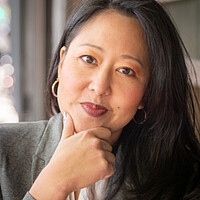Why some Europeans hesitate at Biden’s fight against authoritarians
Loading...
| Berlin
In the fight against the world’s authoritarians, U.S. President Joe Biden wants help from democratic allies. But not all those allies are fully on board with his vision.
A recent poll asked voters in 20 democracies to choose between forming alliances to stand up to countries like China and Russia and taking a softer line that protects mutual economic interests. The YouGov/Global Progress poll of more than 22,000 people then divided countries into three groups: pro-democracy hardliners, pro-engagement “soft-liners”, and a middle group dubbed “handwringers.” These handwringers include Germany, Hungary and the Netherlands, and their populations show clear fissures over how much weight to put on exporting democratic values.
Respondents in France, Italy, and Spain expressed fewer doubts: Economic cooperation trumps democratic alliances, putting them in the “soft-liner” camp. By contrast, Sweden and the U.K. sided with the pro-democracy camp, along with the U.S. and Canada.
Why We Wrote This
Some Europeans look askance at forming clubs of democracies to confront dictators. Their views reveal nuance to the U.S.-favored framing of democracies versus authoritarians.
And while these views don’t necessarily preclude NATO allies standing firm against Russia in the current standoff in Ukraine, for example, it does point to ambivalence in Europe over President Biden’s democracies-versus-authoritarians framing.
Behind this hesitancy is the narrative that the U.S. lost much of its shine as the world’s democratic beacon amid President Donald Trump’s tenure, capped by the Capitol riot debacle as his term came to an end. There are also unique historical ties between individual countries and Russia, and support for strong economic ties with China. More than that, Europe with its welter of languages, cultures and styles of governance doesn’t fall so neatly into “black and white thinking,” says René Cuperus, a political columnist and senior fellow at the Clingendael International Institute, a think tank in The Hague.
“The Europeans don’t like to think in terms of friend or foe, and what [Biden’s] summit of democracies is doing is more or less preparing a new Cold War between the democracies and authoritarianism,” says Dr. Cuperus, referring to a virtual summit held last month. “I don’t think that Europe wants to enter that frame. They are part of a multilateral family.”
A call for self-reflection
For four years, Europe endured a U.S. president who flattered dictators and disdained democratic allies, including in Europe. That the same president, or an acolyte, could return to power has led some to question the stability of American democracy itself.
“I think in Europe, we would like to see the Americans go into self-introspection and self-reflection about their own democracy rather than exporting it. America is a very vulnerable, polarized democracy at the moment,” says Dr. Cuperus.
Deep, complex relationships with authoritarian countries like China and Russia also color the picture. German Chancellor Olaf Scholz hails from a center-left party with a historic affiliation with Russia, a country that was invaded by Germany and its fascist allies during World War II. “There’s a lot of guilt,” says Dr. Cuperus. “It’s not so easy for Americans to understand the legacy of the Second World War engine in Europe.”
Then there’s the economic weight of undemocratic powers like China. Take the Netherlands: It’s a longstanding trading nation that hosts ASML, a world-class computer chip toolmaker that underpins global high-tech supply chains.
“Should they be allowed to export their very high-class chips to China, or is that giving Western world a problem?” asks Dr. Cuperus. “But America is not compensating for that loss dealing with China. There should be a compensation mechanism within the western transatlantic trade arena.”
Trade with China has also driven policy in Germany, which under former Chancellor Angela Merkel backed a controversial European Union-China trade agreement that stalled last year. Germany also relies on Russian gas, particularly with the phaseout of nuclear power.
Operating from a different baseline
Overall, European countries perhaps operate from a different baseline than the U.S. on the purpose of foreign policy. Human rights violations don’t necessarily compel EU countries to act to change those governments’ behavior, says , director of Europe in the World Program at The Egmont Royal Institute for International Relations.
“Furthermore, they don’t necessarily see the fact that China is authoritarian as the defining aspect of China,” adds Dr. Biscop. “Probably a democratic China would not abandon its claims to Taiwan, probably not even to the South China Sea, and it would still be a mighty economic competitor. What’s defining here — that China is authoritarian, or is it that it’s a great power?”
And while Russia borders Europe and poses a direct military threat, as seen in Ukraine, friction with China relates mostly to economic competition and the rules of trade, he notes.
Ultimately, there’s a pragmatism to Europe’s approach to global issues, and a realization that China and Russia need to be at the table, Dr. Biscop says. “People do care very much, for example, about climate change but it’s not so directly related to form of government,” he says.
For Hungary, another “handwringer” in the YouGov poll, the notion of standing up for democratic values is at odds with its own form of government under President Viktor Orbán; most analysts consider it a nondemocratic state. “Viktor Orbán has very openly challenged EU liberal norms, so it’s really a core part of his ideological identity,” says Richard Youngs, a democracy expert and senior fellow at Carnegie Europe.
Some European democracies are relieved that an America that vacated the field of democracy promotion and human rights policy under Mr. Trump has come back into the conversation.
“But I still think there’s a degree of skepticism over what a U.S.-led democracy and human rights push might achieve,” says Dr. Youngs. “The key question is, what happens now. It’s not simply about rebuilding the old transatlantic relationship. Can this move toward being an initiative that’s genuinely global?”









